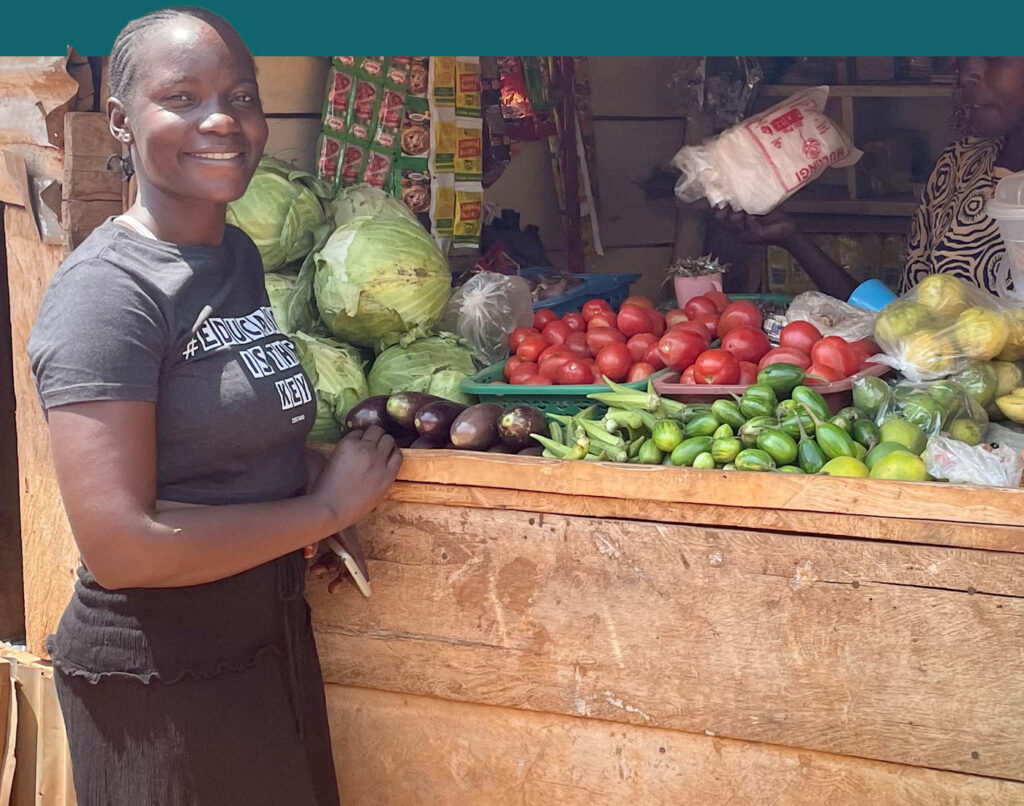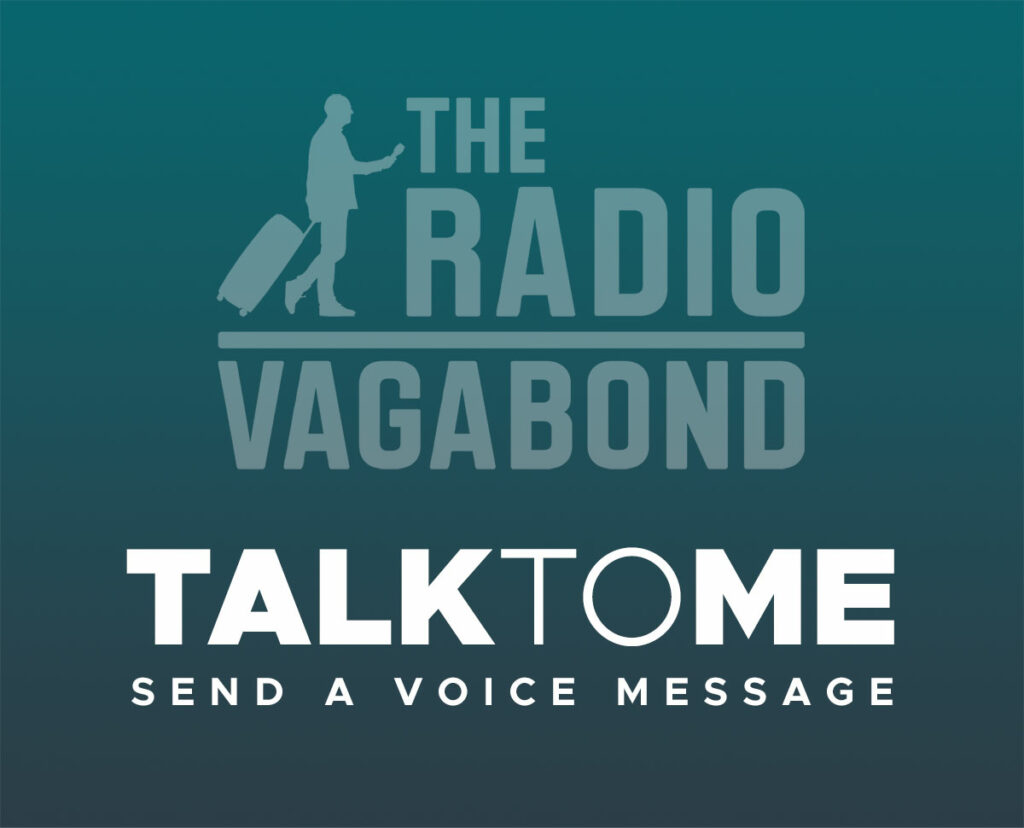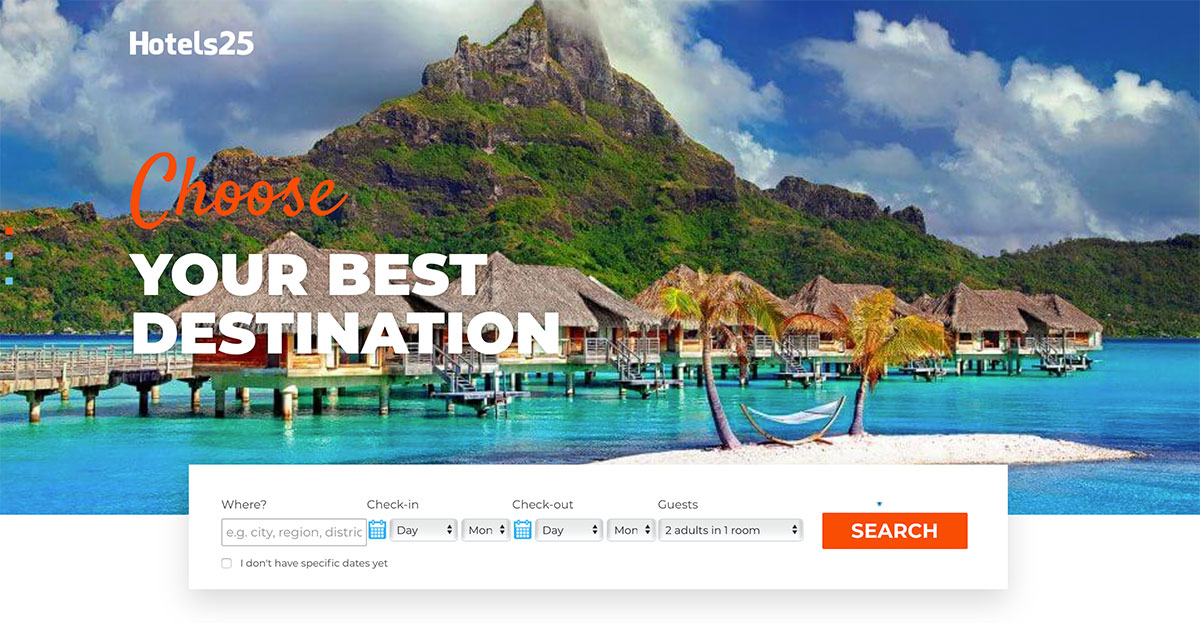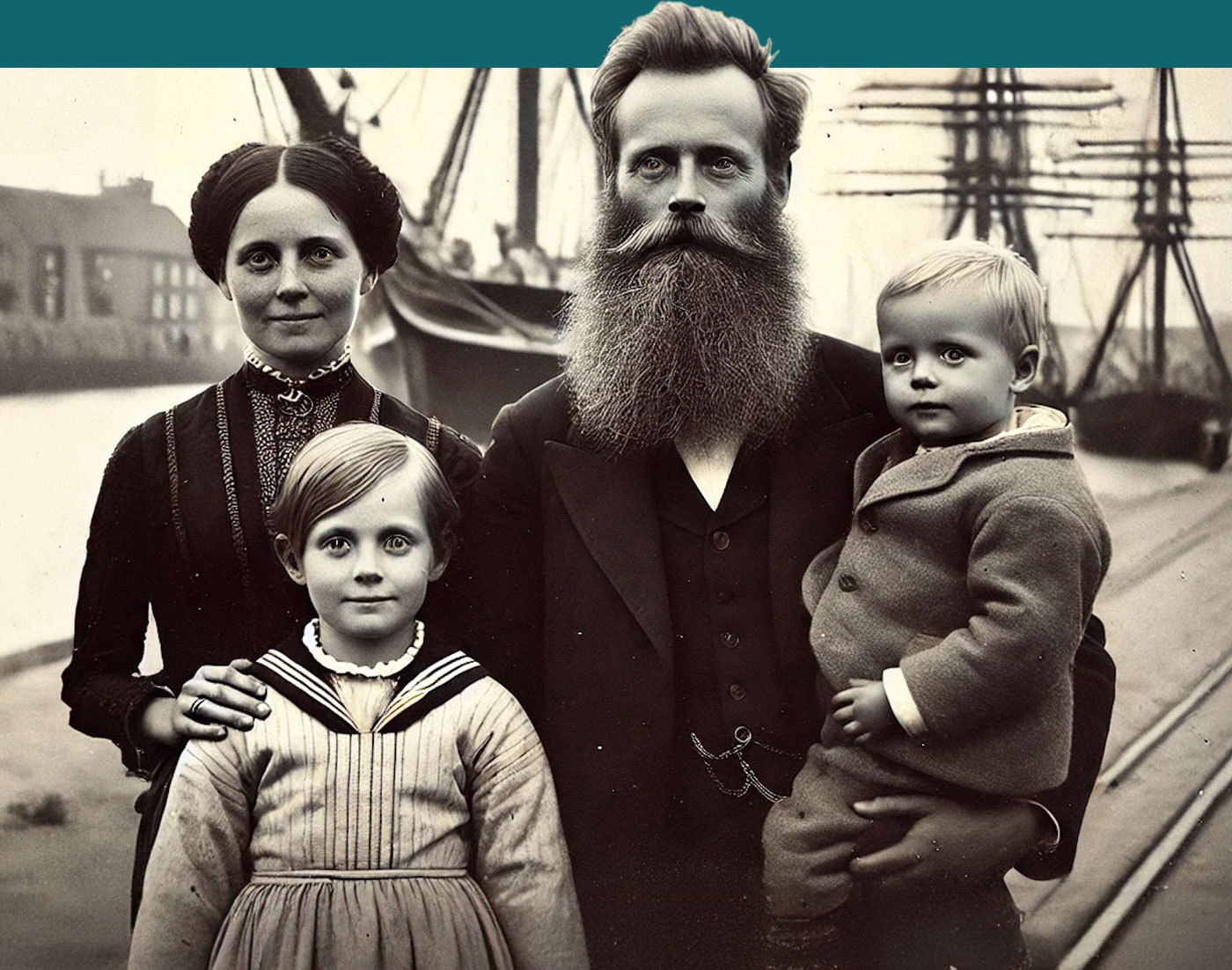Mwaniriziddwa mu Uganda
Welcome to the first of a miniseries from the struggling Acholi Quarter; a part of Kampala in Uganda that is getting help from a foundation called 22STARS.
The story actually starts a few years earlier, when I got to know a Dutch/German woman, Stella Romana Airoldi on a Nomad Cruise. In case you don’t know Nomad Cruise is like a conference for digital nomads on a cruise ship.
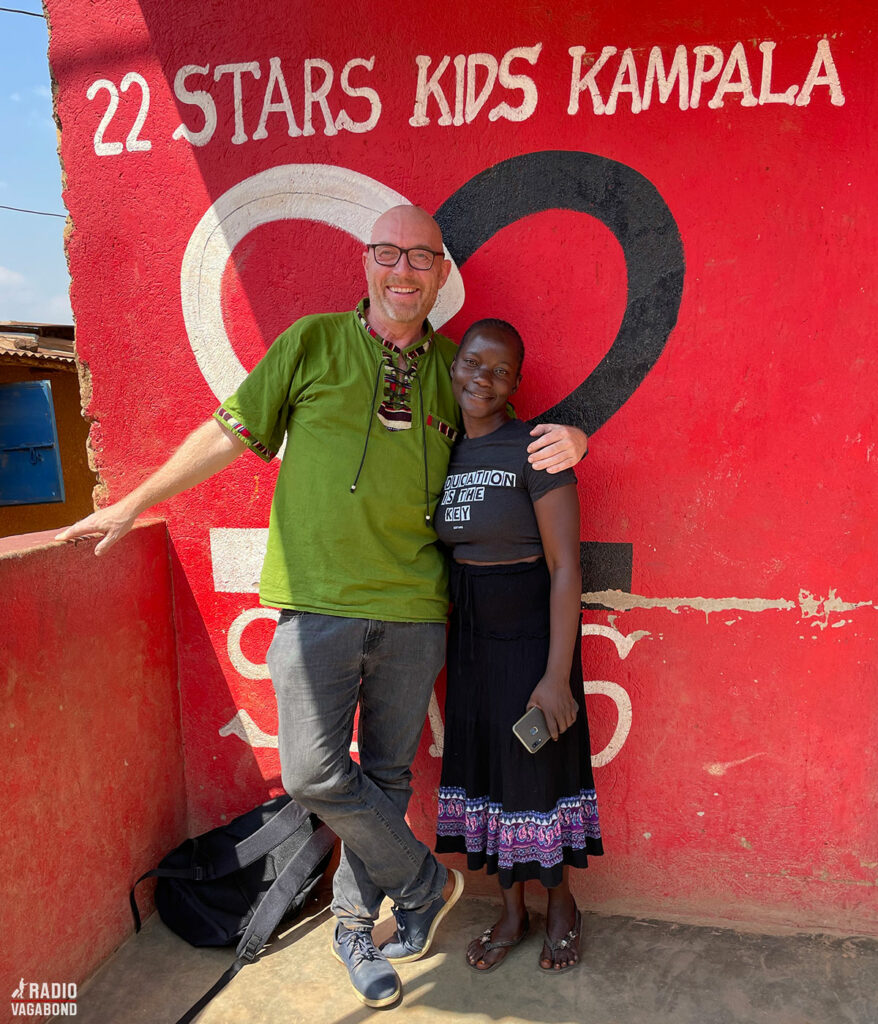
Meeting Stella and Susan
On this one in the Mediterranean from Malaga to Athens, Stella was given a talk about a social enterprise and foundation called 22STARS – together with an Ugandan woman, Susan Laker.
Susan and other Ugandan women are making jewellery out of colourful recycled paper and Stella is helping them sell it around the world. This talk and meeting Stella and Susan on the Nomad Cruise made me think, that I had to go to Uganda and see this with my own eyes. So, in this episode I’ll take you along as I drive down a dirt road in the Acholi Quarter, a slum area in the outskirts of Kampala.
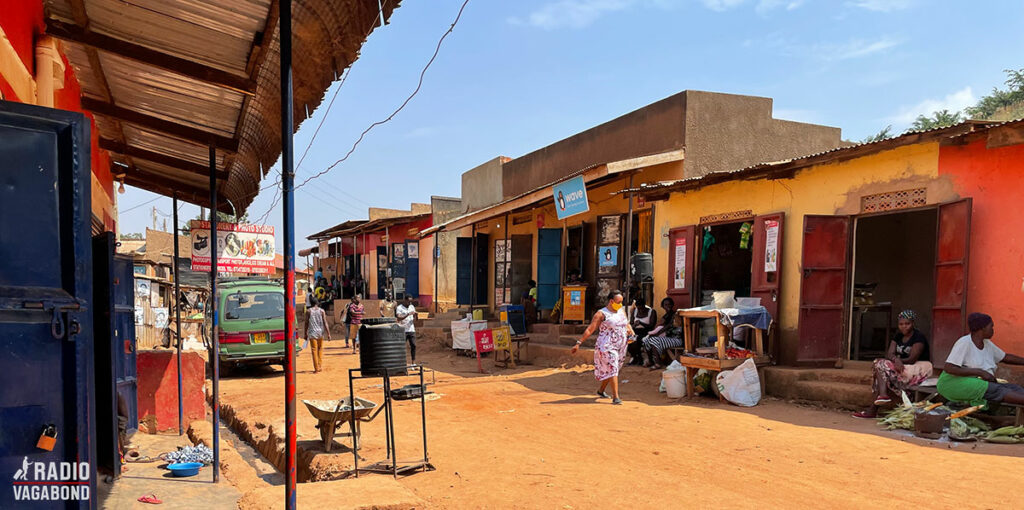
I’m in the car with Nicholas Basalirwa from 22STARS, and there’s a young woman on the street that looks just like Susan. She says hi to me in the car and I say, “are you Susan?” But the woman says “no, I’m her daughter” – and it surprised me that Susan could have a grown-up daughter.
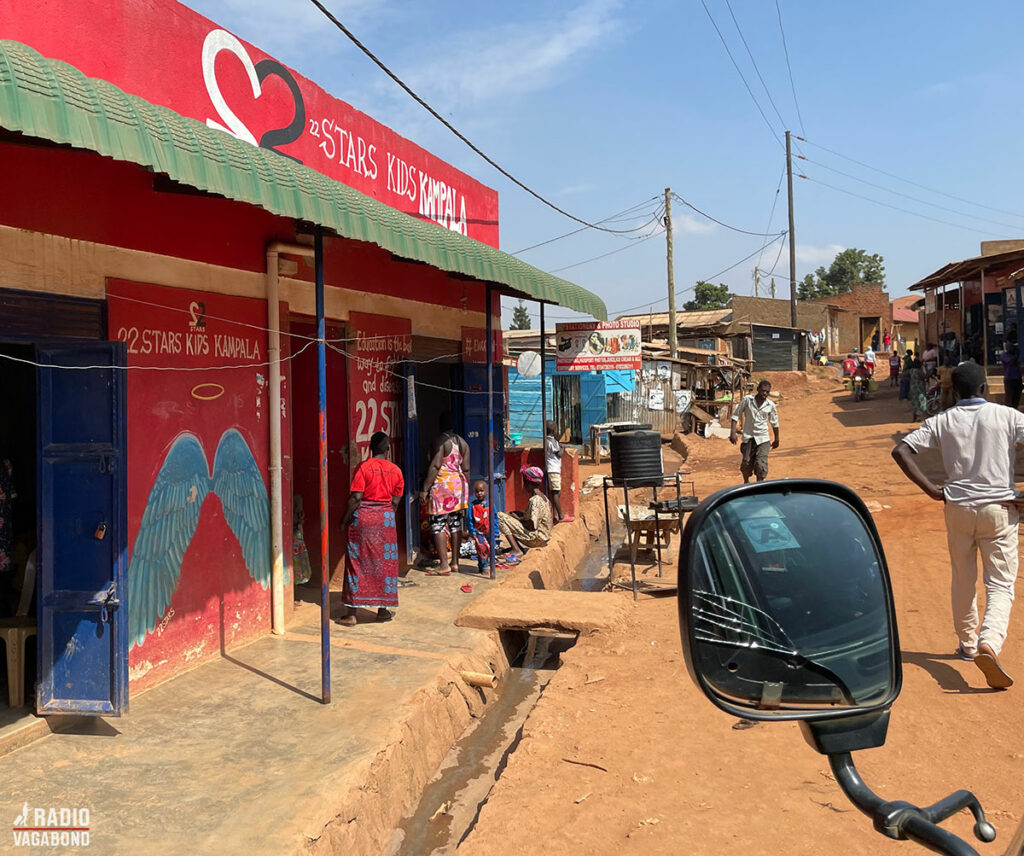
22STARS JEWELLERY AND FOUNDATION
Let me give you a bit of background. 22STARS started back in 2009 when Stella was 23 years old, and Susan was just two years older. Stella was studying international law and came to Uganda to do research for her thesis. Here, another Ugandan woman, Aidah Wafula, who’s a social worker at an HIV/Aids Information Center in Kampala introduced her to Susan, who, at the time, didn’t speak any English. But still, Stella could see hear her extreme willpower and sense her big heart, and Stella wanted to help any way she could.
So, in the following few years Stella sent money annually to support Susan`s business, and with that support, Susan took the opportunity to go back to school. And she was able to put food on the table for her three children. Before she met Stella, they were working in the stone quarry, but now they were able to go to school.
At the end of 2012, Stella returned to Kampala and was extremely impressed when Susan spoke to her in English and showed her what she had learned. Susan expressed the need to market and sell jewellery from the other women in her community, so that they also would be able to pay for the education of their children. And the very same day the 22STARS Jewellery business was created.
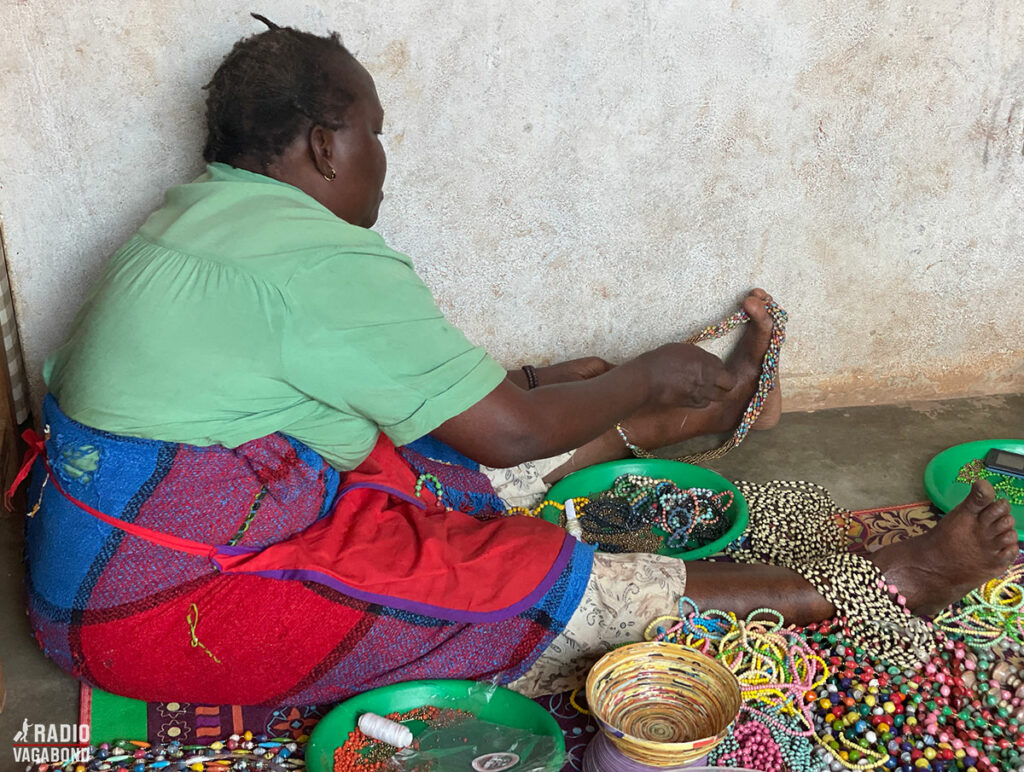
WOMEN MAKING PAPER JEWELLERY
As I get out of the car, I see a handful of women sitting on the sidewalk making the beautiful handmade paper jewellery. And they smile at me and give me a real Ugandan welcome – in the form of a happy outcry. It’s hard to explain what it sounds like, so you can hear it in the episode.
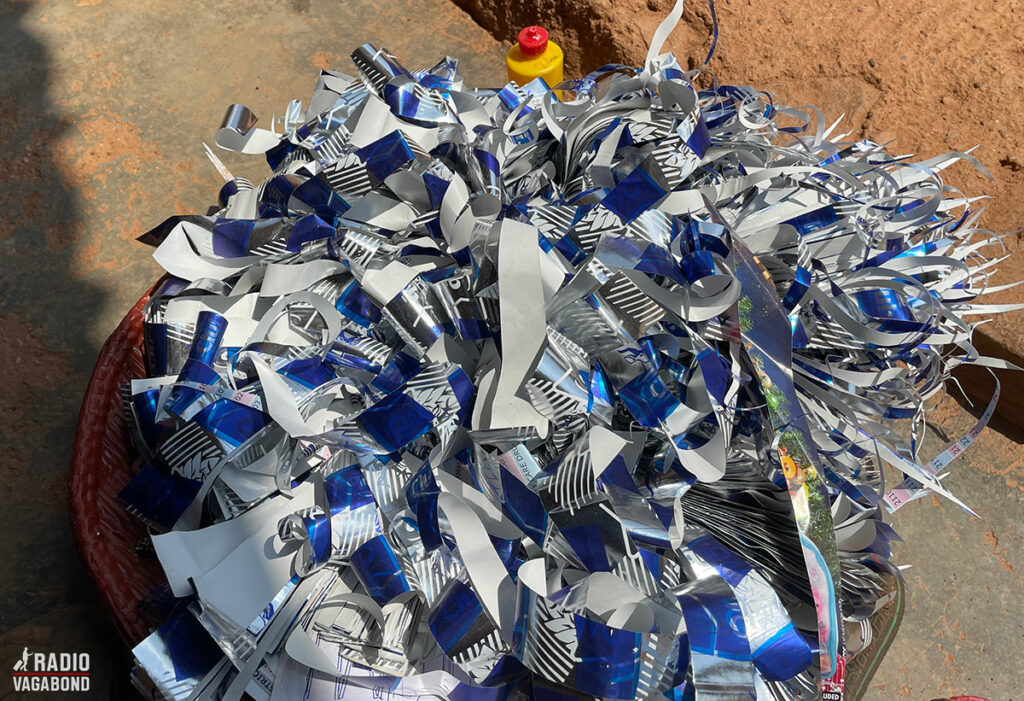
We’re standing next to the women on the sidewalk or as Susan calls it “the factory of the beads.” They make beads, and turn them into jewellery, Christmas ornaments, and baskets.
They are made out of recycled papers. Susan tells me how they measure them, they cut, roll, varnish and assemble them. Susan explains:
“We assemble them in different fashions, and we roll them in different shapes. We also cut them in different centimetres or meters or others in millimetres.”
Susan shows me some beautiful necklaces, and I’m impressed that it’s all made out of paper. It’s absolutely stunning.
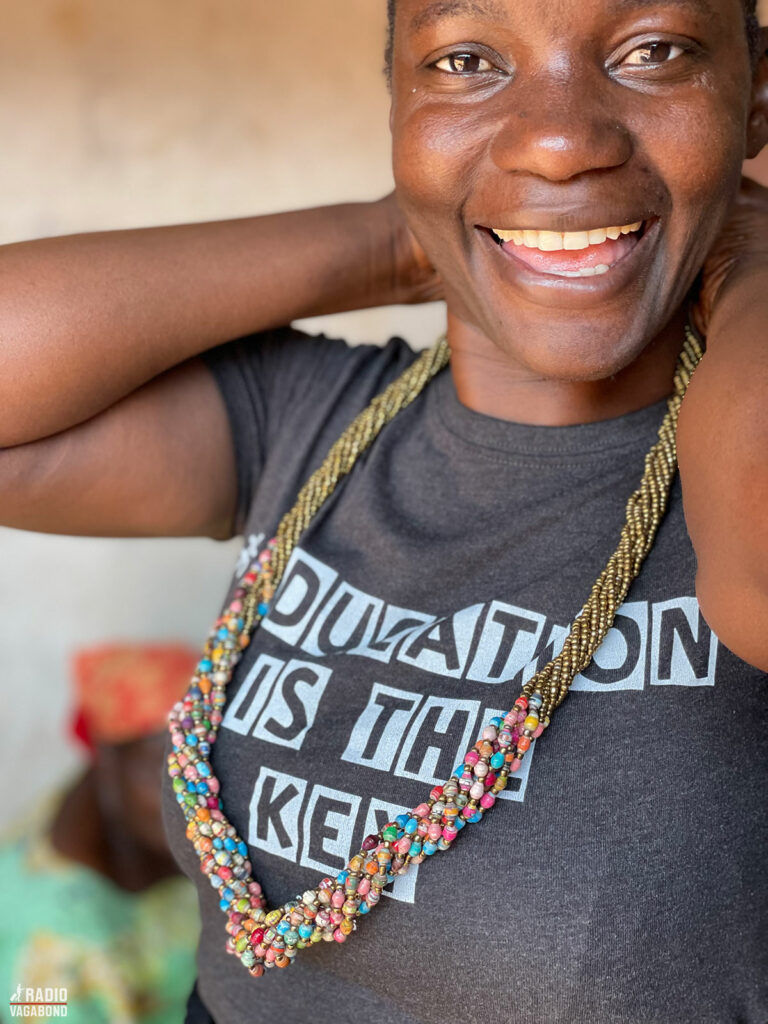
Each piece of jewellery is hand-crafted from 100% recycled paper by one of forty 22STARS empowered women. They buy old posters, bottle labels and magazines, then the women cut the paper in triangle shapes of various sizes, roll them up, glue them and varnish them. Every bead is waterproof, shiny, and hard. Once the beads are ready the designing starts.
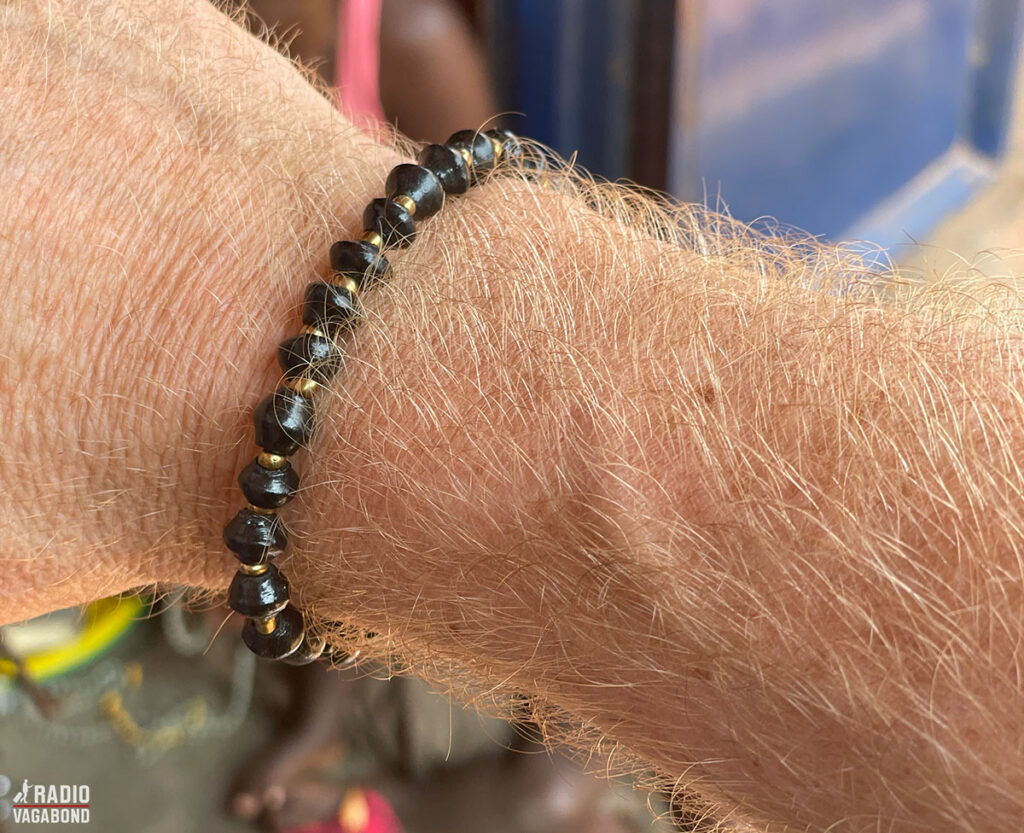
The necklace she’s showing me should go for 50,000 Ugandan Shilling – that’s around 13 USD or 12 EUR, but because they are desperate, they sell it for as low as 3,000 which is less than one Dollar or Euro.
“They want to end living from hand to mouth and to have food on the table for the children. Some of them already slept with empty stomach, so they cannot resist. And if somebody says, I want these for 2000, or 1000, they’ll just go for it. No one values the time and the energy that has been put into making it. Really this should go for 50,000 Ugandan shillings, but because we don’t have the market, we give it out for 3000 or even 1000. So, we just do it but not willingly.”
Think about this when you’re at a local market in a developing country and are bargaining for a good price on local craft that has taken hours to make.
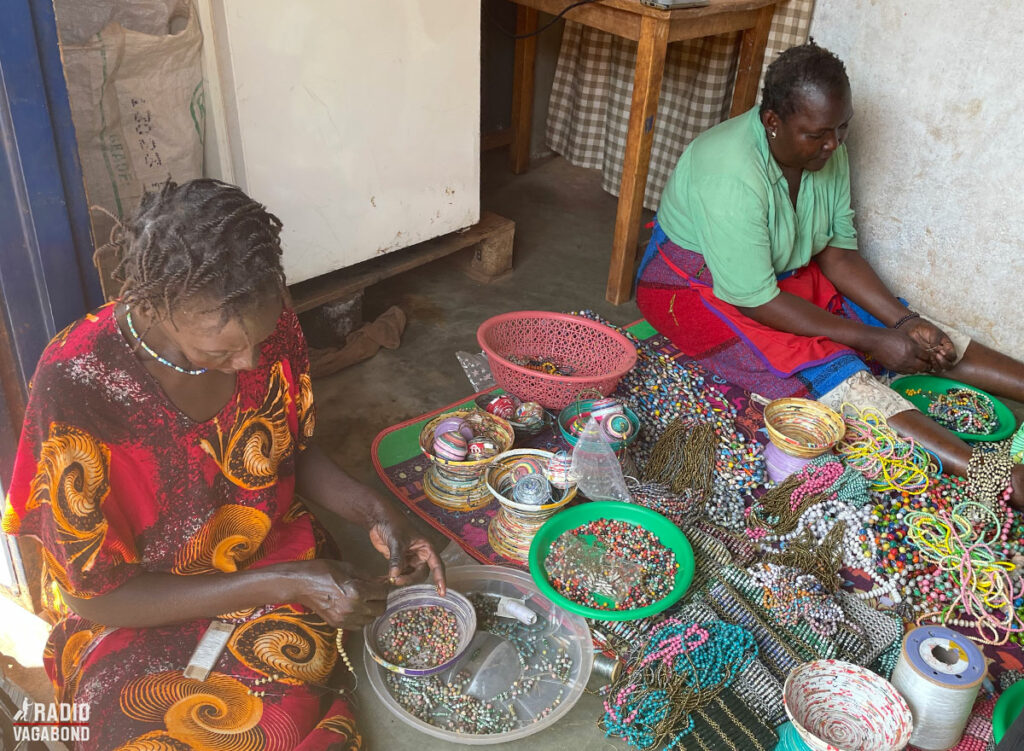
In order to be less dependent on selling them on local markets here in Kampala, Stella also finds markets for the jewellery outside of Uganda. So far, they sell the jewellery in more than ten countries worldwide and are constantly looking for new people to become a wholesaler in other markets. If you’re interested go to 22stars.com and reach out to Stella.
LETTER FROM A LISTENER
I’ve received a message from Nick Bolton. He’s a 53-year-old guy from the UK that is about to embark on his own nomad journey. When he wrote this he was listening to my episode from Senegal.
He writes:
Hi Palle,
Just wanted to share what an inspiring podcast you’ve created.
To me, you’re currently in Senegal so I guess there are parallel universes when you’re a vagabond.
I start my own full time vagabond journey in January by moving to Dubai as a base then travelling the world. Your podcast inspired that.
In the meantime, this year is a year of mini adventures cycling from Brindisi to the UK and trekking in the Himalayas. I hope one day our paths cross on the Vagabond paths.
PS – I lived on a boat for 3 years called Vagabond!
Thank you so much for reaching out, Nick. I can’t wait to follow your vagabonding journey. And I’m sure we’re going to meet somewhere in the world at some point.
On that note, I can recommend that you go to Bansko Nomad Fest in Bulgaria in June 2023. It’s a great place to meet a lot of like-minded nomads. I’ll be there for a full month and also doing a talk on how to start a podcast.
LETTER FROM A LISTENER
I’ve received a message from Nick Bolton. He’s a 53-year-old guy from the UK that is about to embark on his own nomad journey. When he wrote this he was listening to my episode from Senegal.
He writes:
Hi Palle,
Just wanted to share what an inspiring podcast you’ve created.
To me, you’re currently in Senegal so I guess there are parallel universes when you’re a vagabond.
I start my own full time vagabond journey in January by moving to Dubai as a base then travelling the world. Your podcast inspired that.
In the meantime, this year is a year of mini adventures cycling from Brindisi to the UK and trekking in the Himalayas. I hope one day our paths cross on the Vagabond paths.
PS – I lived on a boat for 3 years called Vagabond!
Thank you so much for reaching out, Nick. I can’t wait to follow your vagabonding journey. And I’m sure we’re going to meet somewhere in the world at some point.
On that note, I can recommend that you go to Bansko Nomad Fest in Bulgaria in June 2023. It’s a great place to meet a lot of like-minded nomads. I’ll be there for a full month and also doing a talk on how to start a podcast.
PANDEMIC WAS TOUGH HERE
A lot of people, they mistakenly think that the pandemic only affects tourism, but it affects everything, but Susan tells me that the Pandemic also affected everything here.
“Since the lockdown, we have suffered with no market, nothing at all. Everybody was affected. The schoolchildren, the parents, people living in the community. We were all packed in this small area. We don’t have big houses and we don’t have a fridge to store our food or anything. We don’t have any garden and we live as refugees We survive on stone quarrying and these beads. We live from hand to mouth; this is how we feed, and people were not coming to our community to support us. We had no access to go to the bigger towns or the village to bring food and split them here in small quantity and sell them to the needy. So, people suffered.”
The government promised that they would give food, but that was not nearly enough. Some families have as many as 17 people, and the food given to them was only enough for one or two days. There’s they had no breakfast, no lunch, only a late, late dinner. And that was it.
But thankfully 22STARS was able to do a lot to help them through this tough time.
“We are so grateful. And thankfully with 22STARS we were able to put up a fundraising and we got food, donated several times, beans, rice, soap, clean water. We also got our children studying. We had to hire teachers. They bought us masks, they bought us all the equipment we needed. We were given laptops, projectors. We were also given solar system and a generator in in case there was no power. So, our children were kept well, thanks to donors and sponsors.”
We also got blankets and mattresses donated. And this time when our children were returning back to school, we were given school scholastics, like books, bags, school shoes, which really helped a lot.”
One of the main areas of work for 22STARS Foundation is education. The organization provides scholarships for children who come from disadvantaged backgrounds, enabling them to access quality education that would otherwise be out of reach.
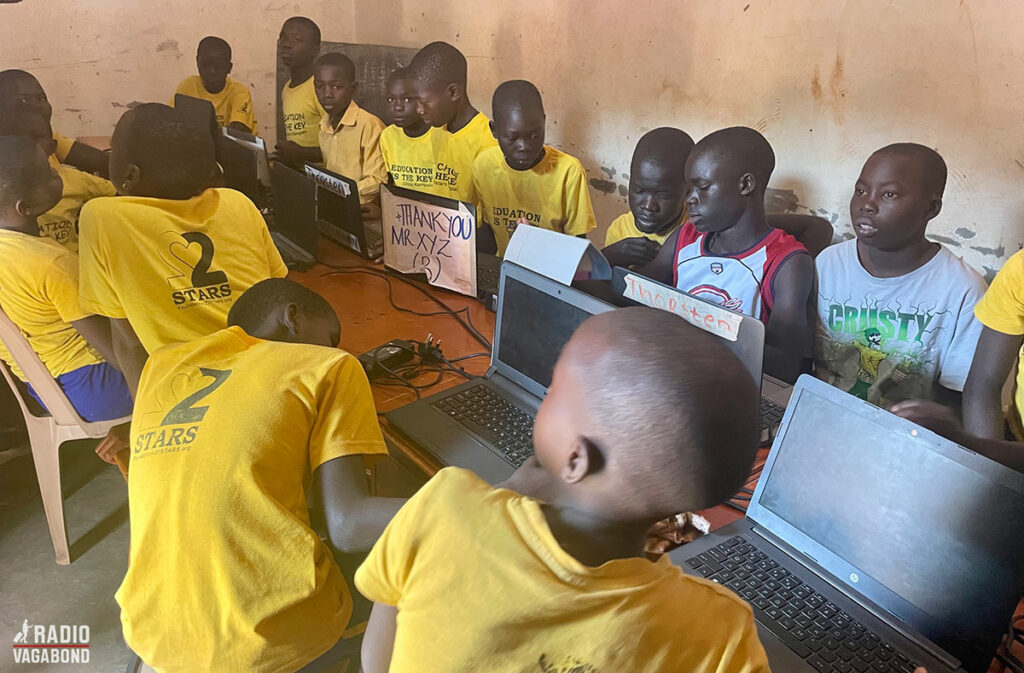
KIDS STAYED IN SCHOOL
“I’m so thankful that none the children sponsored by 22STAS, dropped out of school because we were able to keep counselling them, providing them with education and different skills. We got them computers to keep them busy and avoid them from moving up and down the street looking for food, like most of the other children, who go pick scrap to sell and make a living. But thankfully our project supported with all the things that we were able to pass through this COVID 19 situation.”
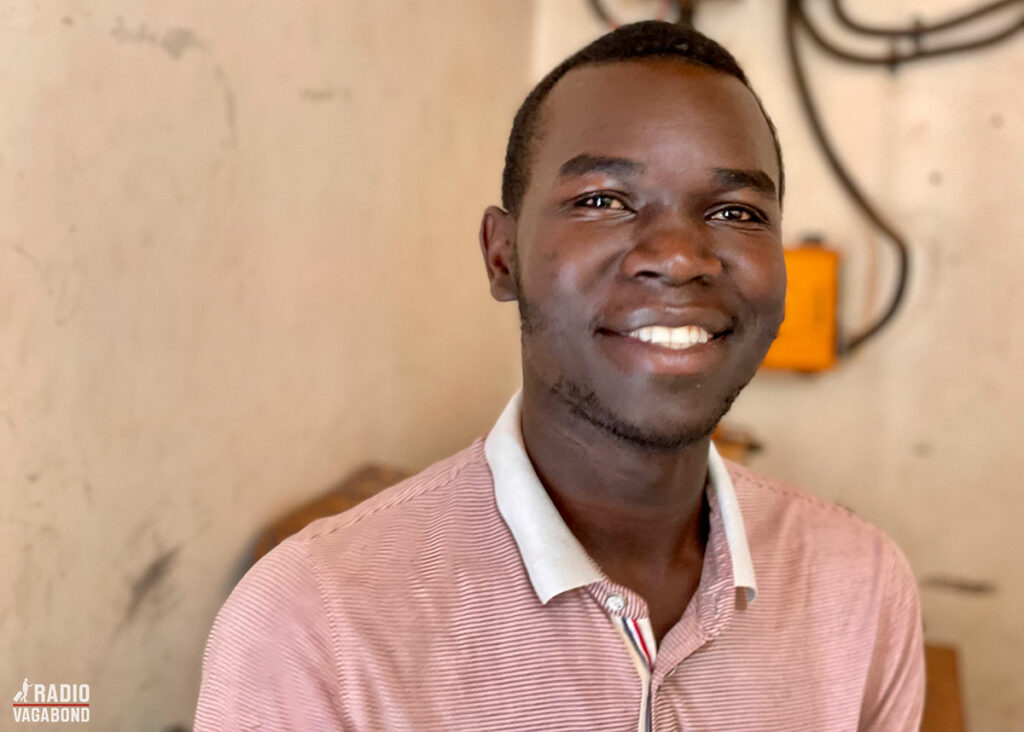
As the women are giving me yet another outcry of gratitude, Susan takes me into a small classroom with around 25 children around a table with maybe ten laptops. All the children are in yellow T-shirts where it says “22STARS. Education is Key”.
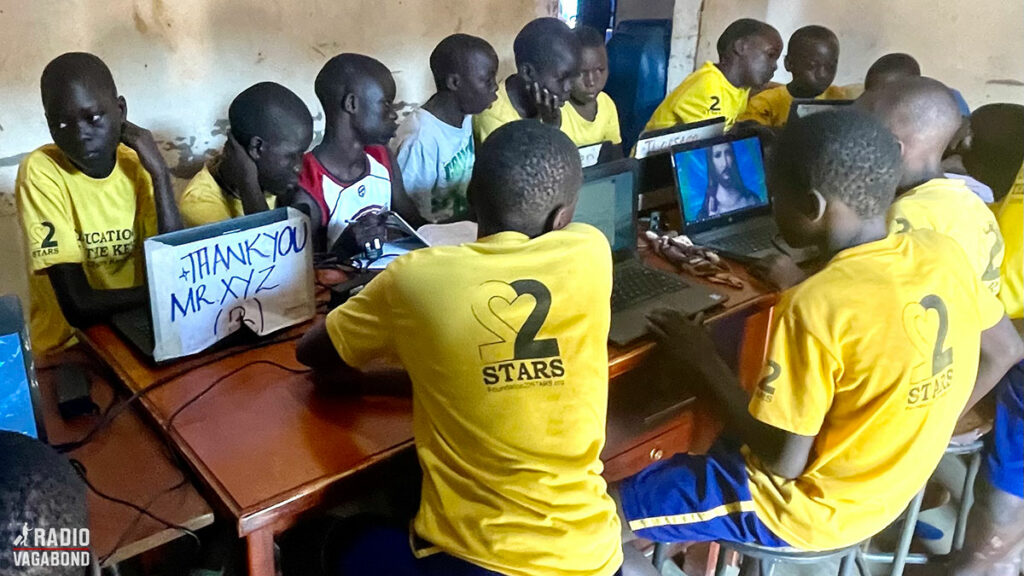
As the women are giving me yet another outcry of gratitude, Susan takes me into a small classroom with around 25 children around a table with maybe ten laptops. All the children are in yellow T-shirts where it says “22STARS. Education is Key”.
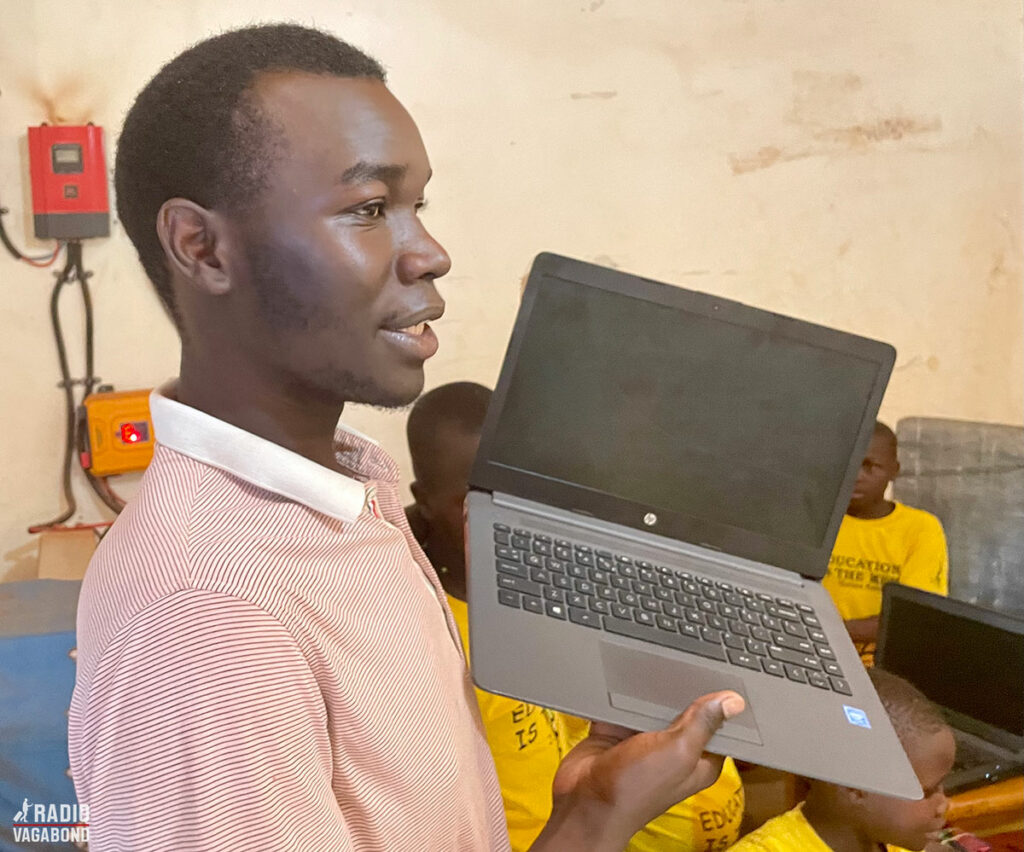
The teacher, Joel Watimon, is a university student and has been volunteering as teacher for 20 months.
PROVIDING MICRO LOANS
As Joel is starting his class, teaching basic computer skills, Susan takes me into the room next door where a lot of grown-ups are presenting their business ideas to Nicolas from 22STARS to get small business loans
Because 22STARS Foundation provides microloans to local people in Uganda as a means of supporting them in starting or growing their small businesses. Susan explains that these loans are typically small amounts of money that can be used to purchase inventory, equipment, or other resources that will help the business to become more profitable.
“Here are our ladies who are beneficiaries from the small business loan. This is this sixth time these ladies got the loan, and this has brought a lot of impact in their life. Their lives have changed. They have transformed from crushing stones and running on the street with the beads, trying to earn money to feed their families. But now, with the small business loan, given, most of them were able to find a permanent premises where they do operate their businesses through.”
The microloan program works by providing loans to qualified applicants, who are often women that may have limited access to traditional financial institutions. The loans are provided at a low interest rate, and borrowers are given a specific period of time in which to repay the loan.
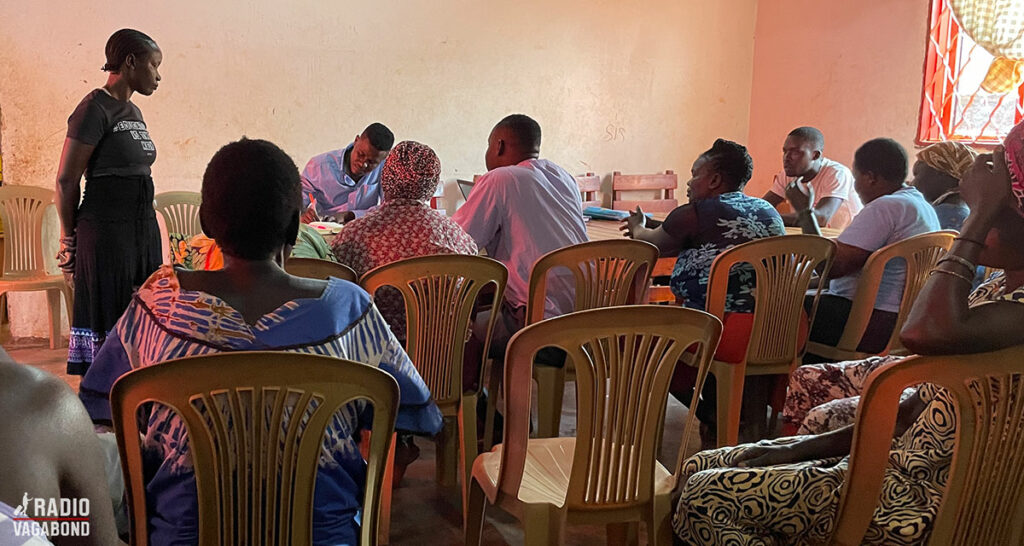
To qualify for a microloan from 22STARS Foundation, applicants must meet certain criteria, such as demonstrating a viable business plan and showing that they have the capacity to repay the loan. Once approved, the loan is disbursed directly to the borrower, who is then responsible for using the funds to grow their business.
”Some of them are selling food, some of them are having the hairdressing salons, some of them are having shops. And with this they are able to support their family, buying scholastics for school, putting food on the table, clothes and paying their medication.”
Along with providing financial support, 22STARS Foundation also offers business training and mentoring to help borrowers make the most of their loans. This includes support in developing marketing strategies, financial planning, and other skills that are essential for running a successful business.
Susan explains:
“They already had some business, but they didn’t have capital. They already had some small skills of business, and the scale was so little that they didn’t know how to do the business. So, we had we brought in Nicholas, and he taught the ladies how to handle businesses, how to save money, how to pay back the loan, how to budget, how to plan, and how to use the capital and the loan.
He counsels them, talks to them, tell them why he was giving them such amount of the money. Nicholas comes again and makes sure we do the follow up.
He also asks where were the challenges? How did it go? And if we finish all of that, we are given another money to continue again.”
The microloan program provided by 22STARS Foundation has helped many local people in Uganda to start or grow their businesses, providing a means of economic empowerment and helping to lift families out of poverty.
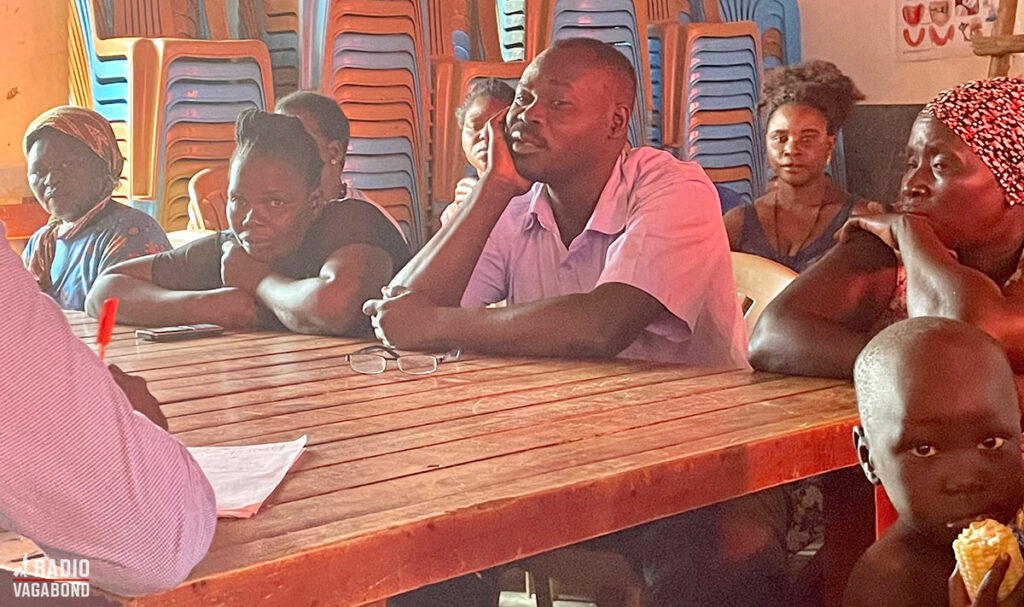
In a break, I ask Nicholas what they are doing today in the room with the micro-business owners.
“Basically, this is a session of feedback, what they think the changes they have to make in the next loan programme, what difficulties they are having and helping them try to find solutions in general to see how we can make the programme sustainable for everyone.”
I also speak to one of the small business owners and one of the beneficiaries in the room: Mr. Becker. He has a small retail shop. He tells me that the program has helped his business a lot.
“I’m very happy because it has made it possible for my business expand as I needed some extra capital for stock in my shop. With the loan it’s been possible, and I’m doing well.”
By supporting small business owners, the microloan program helps to create jobs, generate income, and promote economic growth in the local community.
And later Susan will take me for a walk around to see the many small businesses that exits with help from the small loan program.
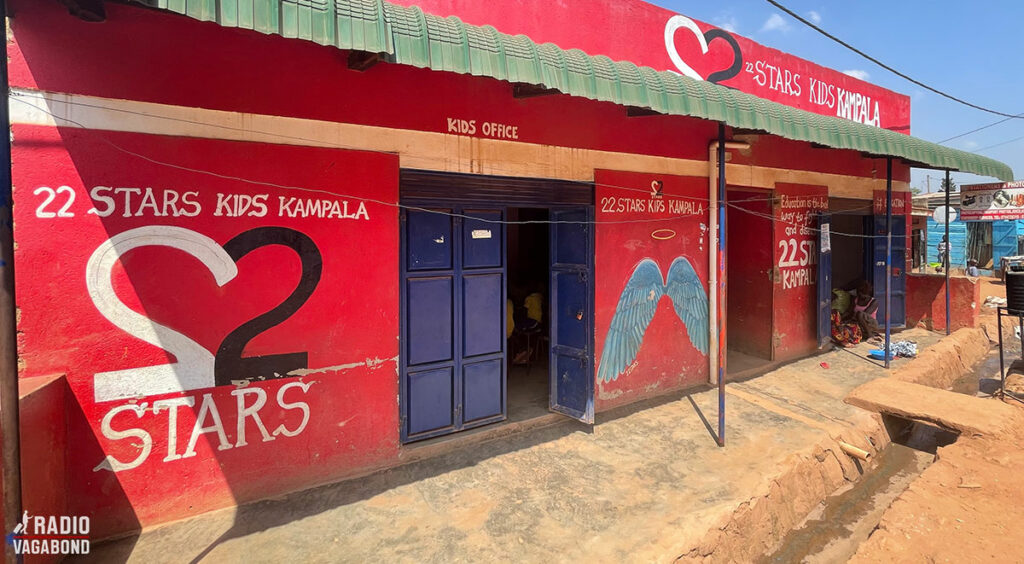
MORE TO COME FROM ACHOLI QUATER
That’s what we have time for in this episode, but I have two more episodes from my visit to the Acholi Quarter in Kampala, Uganda.
In the next one, I take a walk in the area with Susan and Nicholas from 22STARS. And they’re showing me some of the small local businesses that are benefitting from the microloans.
And then an episode where we focus on Susan’s own story. And that will blow your mind. What that woman has been through and how she’s been able to do what she has is unbelievable.
Stay tuned, and if you want to get involved in supporting 22STARS – either by donations or help out in any other way go to Foundation22stars.org. And if you’re interested in becoming a become a wholesaler or just buying some of their amazing jewellery for yourself, go to 22stars.com.
Like they say on the website:
“For every item purchased, we will help a child in need”.
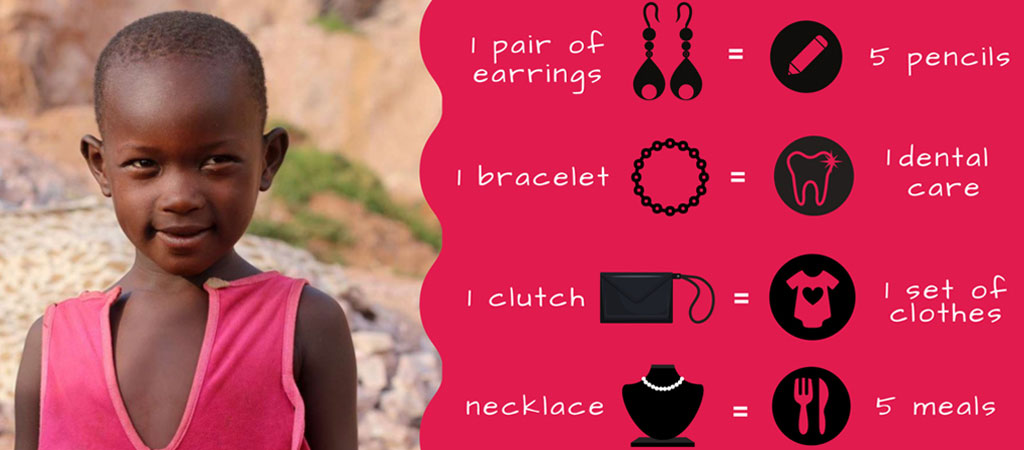
Come back for the next episodes and remember to share this if you think some of your friends should hear this.
My name is Palle Bo, and I gotta keep moving. See you.
JEG VIL GERNE HØRE FRA DIG
Fortæl mig hvor er du, og hvad du laver lige nu, mens du lytter til denne episode. Du kan enten sende mig en email på lytter@radiovagabond.dk eller udfylde formularen her på Radiovagabond.dk.
Eller sende en stemmebesked ved at klikke på banneret herunder.
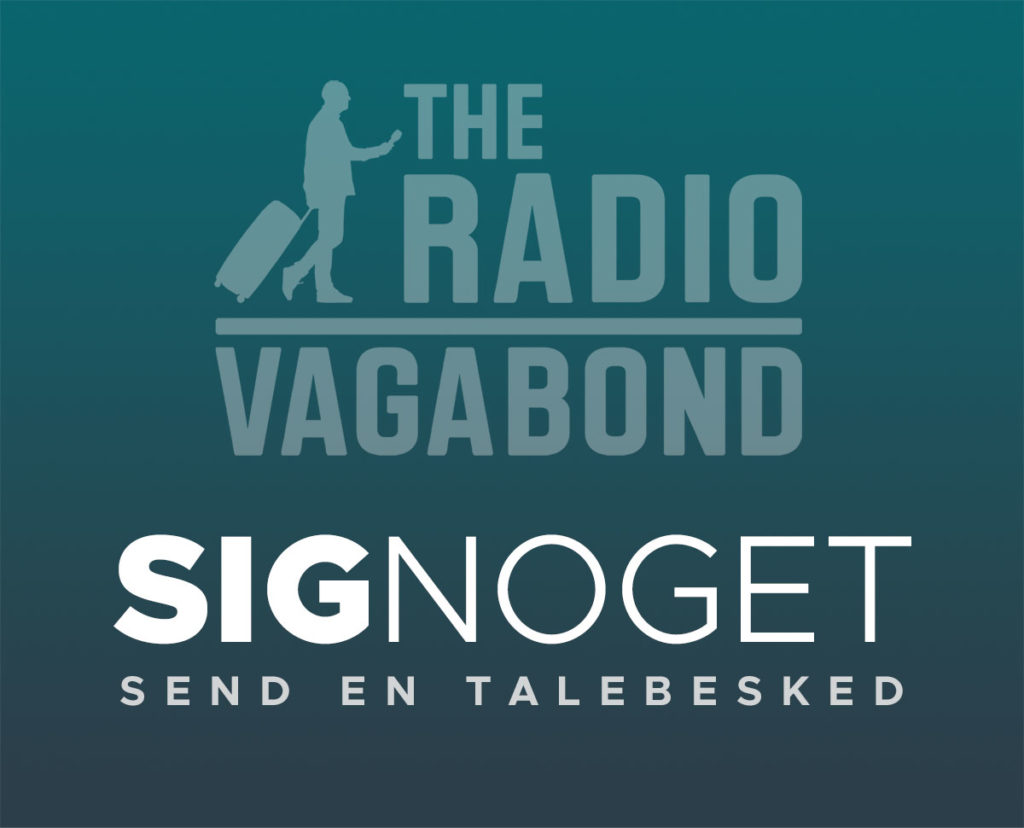
Uanset hvad du gør, vil jeg meget gerne høre fra dig. Det er altid sjovt at høre, hvem der sidder ude på den anden side af højttaleren.
DEL MED EN VEN
Har du en ven, der også er interesseret i at rejse og få inspiration til at komme ud og opleve verden? Så del denne episode. Send en besked eller ta’ telefonen og fortæl om den. Du kan også bare klikke på en af de farvestrålende knapper herunder.
SPONSOR
Som altid tak til min sponsor, Hotels25.dk. Det er et sted, du altid kan finde de bedste priser på overnatning rundt omkring i verden. Og det er garanteret den bedste pris.
RADIOGURU
Radiovagabond er produceret af Radioguru, som også kan hjælpe dig med at starte din egen podcast.
